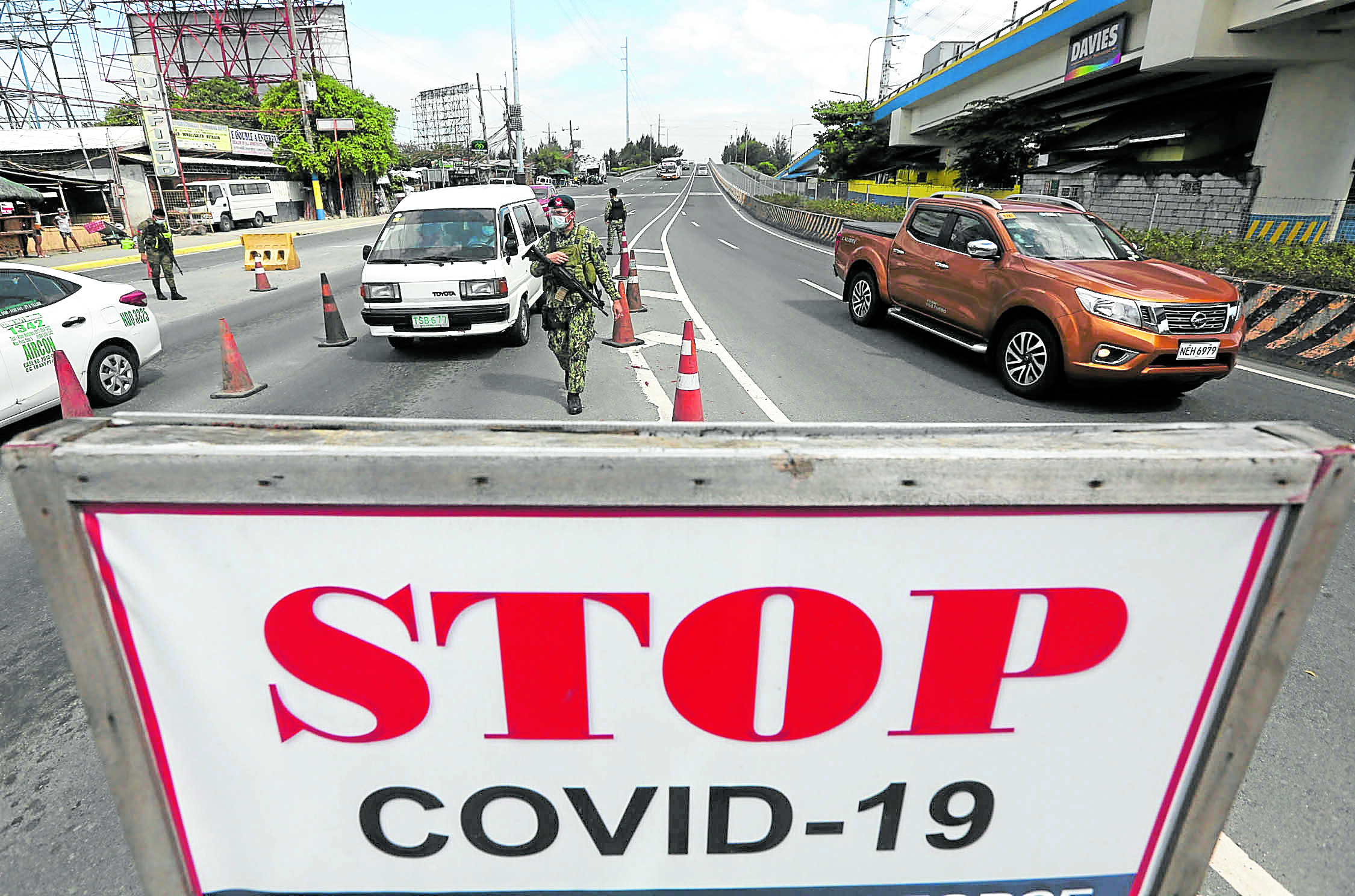
(FILE) In this photo taken on March 22, policemen guard the boundary of Cavite and Metro Manila as the national capital and its nearby provinces are placed under lockdown due to a surge in COVID-19 cases. INQUIRER file photo / MARIANNE BERMUDEZ
MANILA, Philippines — The OCTA Research is urging the government to “urgently increase restrictions” in Metro Manila and consider imposing regional and localized lockdowns as the number of new COVID-19 cases in the National Capital Region increased by 27 percent in the previous seven days.
In its latest monitoring report, OCTA said the average number of new daily COVID-19 cases in Metro Manila was 813 from July 15 to 21, compared to 638 in the previous week.
The independent research group stressed that the increase in cases is still in its “nascent stage” and can still be mitigated with proactive measures.
“This may include contemplating a stricter quarantine status, expanded testing, contact tracing, regional and localized lockdowns,” said OCTA.
According to OCTA, the reproduction number in Metro Manila rose to 1.15 from July 15 to 21, compared to the 0.91 reproduction number over the past week.
The group said this is a “cause for serious concern.”
“The trend in reproduction over the past week shows a similar pattern with the trend from February 12 to 19, when the reproduction number increased from 1.06 to 1.30. That period signified the start of the surge in the NCR,” OCTA noted.
Reproduction number is the average number of new COVID-19 cases estimated to stem from a single case.
Meanwhile, the positivity rate, or the percentage of individuals who test positive among all those tested, was 6 percent in NCR.
“While it is not clear what is driving this increase in new cases without scientific basis, it is best to be cautious and prepared for a possible surge,” said OCTA.
The group also urged the national government and local government units in Metro Manila to reduce capacity in business establishments, lengthen curfew hours, reduce the mobility of children and adolescents, and strictly monitor compliance to minimum public health standards.
“Again, there is still time to reverse the rising trend that we are seeing now in the NCR, but we must be decisive, united, and act swiftly,” OCTA added.
The country has so far detected 35 cases of the highly transmissible Delta variant of COVID-19 that was first reported in India, including the 16 cases that were recently detected by health authorities. Among the recently detected cases, eight tested positive again for COVID-19 despite being initially tagged as recovered by their respective local government units.
The eight positive cases include one in Manila, four in Cagayan de Oro, one in Misamis Oriental, and two returning overseas Filipinos. However, the Department of Health said that “most likely,” the patients are not that infectious anymore because their viral load is already low.
Professor Guido David, a fellow of the OCTA Research, earlier said the number of new COVID-19 cases in the country may increase to around 8,000 this Thursday. This is a significant jump from the 6,560 new COVID-19 cases reported on Wednesday.

